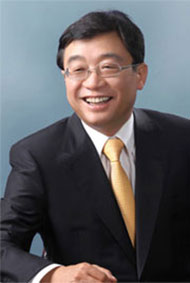Selected Speeches
Dr. OH Yeon Cheonserved as the President of SNU from 2010 to 2014. These are selected speeches during his presidency.
International Policy Advisory Group G20
HIT: 6079
Good Morning.
Distinguished guests and ladies and gentlemen, I would like to offer my warm welcome to all of you who participate in today’s conference.
First of all, it is my great pleasure to make a congratulatory remark in the beginning of the conference on the theme of “Global Economic Recovery under the Shadow of a Currency War”.
During the recent global financial crisis, there has been much effort to recover from the crisis and damage around the world. Seoul National University which has an outstanding reputation for its academic research and for the hub of renowned scholars here at home and abroad, also has actively carried out rigorous and objective research activities on financial and economic recovery with a long-term perspective. But the crisis is not over yet and challenges still remain.
As you know, the G20 Seoul Summit will start tomorrow, and the leaders will try to reach an agreement on many important issues such as reform of international financial institutions, currency realignment, financial regulatory reforms, and sustainable balanced growth. Given this, I think, this conference is a very timely and provides with valuable opportunity to discuss on these issues from an academic viewpoint and share our ideas with world’s great scholars.
We have here with us today very distinguished scholars and policy advisory members from abroad. I am very glad to be here together with Dr. Haruhiko Kuroda, president of Asian Development Bank, Dr. Jeffrey Sachs, professor of Economics and director of the Earth Institute at Columbia University, Dr. Ernestro Zedillo, professor of Yale University and former president of Mexico, and Prof. Max Corden, professor of the University of Melbourne and other renowned scholars who are participating in this conference. I believe that the interactions and discussions among the distinguished guests today will be mutually beneficial and valuable for all, especially the students of Seoul National University.
As president of this university, I am glad that two institutions of this university are co-hosting this wonderful event. For that matter, I like to appreciate the efforts by professor Young-kwan Yoon (director of the Center for International Studies, and also former minister of foreign affairs of Korea) and professor In-June Kim (director of the Institute for Research in Finance and Economics, and also former president of the Korean Economic Association), as well as their staffs. I also would like to express my sincere gratitude to the Asia Development Bank for its generous financial support and the Earth Institute of Columbia University for its effort to organize this conference.
Let me conclude my remark with the hope that this conference will be highly successful so that it may provide insights and guidance to policy-makers and inspire further progress on the issues of global concern. Once again, I would like to extend my sincere thanks for giving me this opportunity to welcome all of you.
Thank you very much.
Distinguished guests and ladies and gentlemen, I would like to offer my warm welcome to all of you who participate in today’s conference.
First of all, it is my great pleasure to make a congratulatory remark in the beginning of the conference on the theme of “Global Economic Recovery under the Shadow of a Currency War”.
During the recent global financial crisis, there has been much effort to recover from the crisis and damage around the world. Seoul National University which has an outstanding reputation for its academic research and for the hub of renowned scholars here at home and abroad, also has actively carried out rigorous and objective research activities on financial and economic recovery with a long-term perspective. But the crisis is not over yet and challenges still remain.
As you know, the G20 Seoul Summit will start tomorrow, and the leaders will try to reach an agreement on many important issues such as reform of international financial institutions, currency realignment, financial regulatory reforms, and sustainable balanced growth. Given this, I think, this conference is a very timely and provides with valuable opportunity to discuss on these issues from an academic viewpoint and share our ideas with world’s great scholars.
We have here with us today very distinguished scholars and policy advisory members from abroad. I am very glad to be here together with Dr. Haruhiko Kuroda, president of Asian Development Bank, Dr. Jeffrey Sachs, professor of Economics and director of the Earth Institute at Columbia University, Dr. Ernestro Zedillo, professor of Yale University and former president of Mexico, and Prof. Max Corden, professor of the University of Melbourne and other renowned scholars who are participating in this conference. I believe that the interactions and discussions among the distinguished guests today will be mutually beneficial and valuable for all, especially the students of Seoul National University.
As president of this university, I am glad that two institutions of this university are co-hosting this wonderful event. For that matter, I like to appreciate the efforts by professor Young-kwan Yoon (director of the Center for International Studies, and also former minister of foreign affairs of Korea) and professor In-June Kim (director of the Institute for Research in Finance and Economics, and also former president of the Korean Economic Association), as well as their staffs. I also would like to express my sincere gratitude to the Asia Development Bank for its generous financial support and the Earth Institute of Columbia University for its effort to organize this conference.
Let me conclude my remark with the hope that this conference will be highly successful so that it may provide insights and guidance to policy-makers and inspire further progress on the issues of global concern. Once again, I would like to extend my sincere thanks for giving me this opportunity to welcome all of you.
Thank you very much.
NEXT
No next
